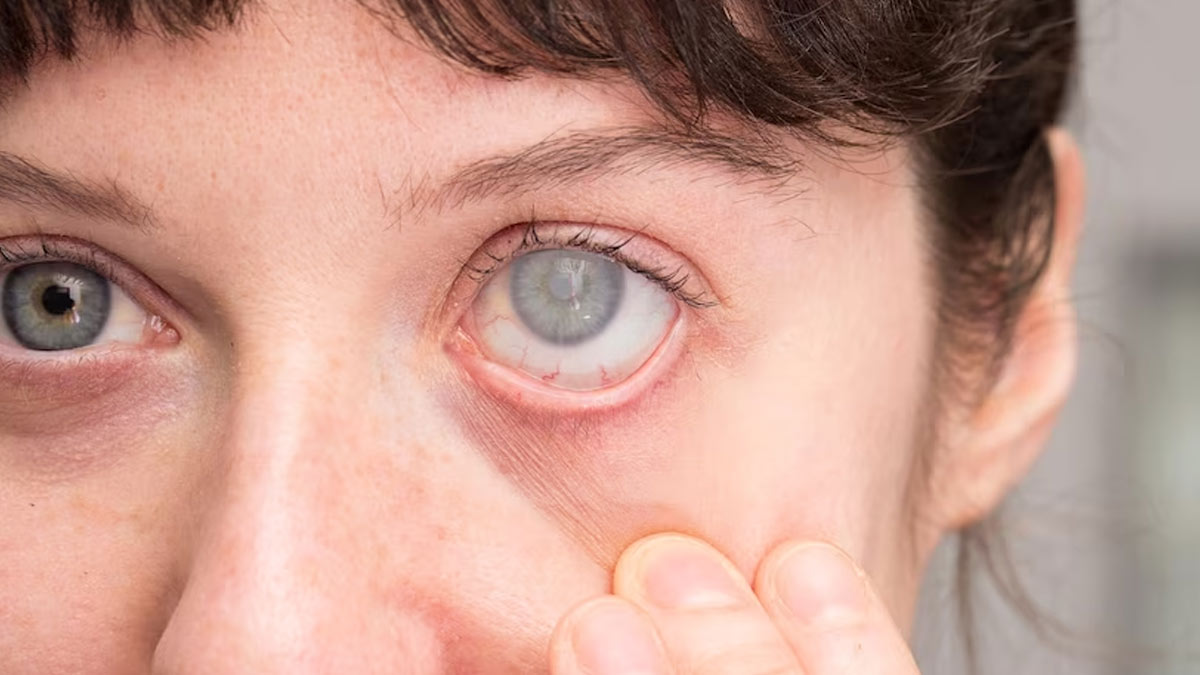
Imagine the time you wake up and your vision suddenly turns cloudy. It may give the impression that you are viewing through a haze that can cause a lot of worry and anxiety. We spoke to Dr Ajay Sharma, Ophthalmologist, Chief Medical Director - EyeQ, to know why this happens.
Table of Content:-
Dr Sharma said, "Vision opacity can affect one or both eyes. Various ailments can result in foggy vision, both common and uncommon. While many of them are not serious, some of them can be."
Common Causes for Suddenly Cloudy Vision
Here are some things to know about diseases that might lead to blurry vision in one eye.
Floaters
Dr Sharma said, "One of the most frequent causes of both foggy and blurry vision is eye floaters." Floaters appear as wavy lines, blobs, or other forms that move in your field of vision. He added that the majority of the time, floaters are brought on by age-related changes to the eye.

"These are insignificant and will disappear on their own. However, you should see a doctor to get tested for causes like a ruptured retina if several floaters arise quickly or if they result in central or peripheral (side) vision loss," he added.
Also Read: Summer Eye Care: Here's How You Can Protect Them From The Sun
Eye Damage, Illness, Or Inflammation
According to Dr Sharma, cloudy vision in one eye can also be brought on by eye injuries or infections, including:
- Eye fatigue
- Uveitis, an eye inflammation
- Eye damage
- Conjunctivitis, an eye infection
Cataracts
"The protein in the eye degrades and clumps together as we age. The aggregates resemble foggy patches on the eye's lens. The name of these patches is cataracts," explained the doctor. "You might not initially experience any symptoms if you have a mild cataract. But gradually, the most recognisable symptom of the condition, cloudy vision, occurs. Others may also notice a cloudiness in your eye," he added.

Other signs and symptoms of cataracts include:
- Fading colours.
- Having trouble seeing at night because of lamps, sunlight, or very bright headlights
- Apparition of haloes around lights
- Dual perception
- Having to frequently update the prescription for your glasses
Treatments For Foggy Vision
Dr Sharma said, "The treatment for foggy vision in one or both eyes depends upon the cause." He added that you may also treat minor causes of blurry vision at home, such as eye discomfort or strain. "Consider taking a break from reading or using screens if you have eye strain, apply warm compresses to relieve itchiness, or use over-the-counter eye drops if you have dry eyes," the doctor recommended.
Also Read: Summer Eye Care For Aging Adults: Expert Tips To Maintain Eye Health And Vision
Dr Sharma said, "Prescribed topical or oral medication can be used to treat minor eye infections. But if your eyes are undergoing a macular degeneration, there is no cure. However, it can be managed with nutritional supplements, photodynamic therapy, and medications."
"Treatment options for diabetic retinopathy include laser surgery, eye surgery, and eye injections. While in the case of cataracts, surgery is the only available treatment," added the doctor.
Conclusion
Minor conditions like eye irritation, an infection, or floaters may be the cause of blurry vision in one or both eyes. Additionally, the cause of blurry vision is cataracts, which can be corrected with simple surgery. Macular degeneration, diabetes, and uncommon issues like a stroke are some of the most severe causes of foggy vision.
"If you notice any fogginess in your, note when it began and how long it has lasted before informing your healthcare professional," suggested Dr Sharma. "Don't delay seeking medical assistance if you experience foggy vision or other ‘red flag’ symptoms of a more serious problem," he concluded.
[Disclaimer: The information in this article is provided by a registered dietician. However, we recommend you consult your healthcare provider for a diet plan as per your body's requirements.]
Image Credits: freepik
Also watch this video
How we keep this article up to date:
We work with experts and keep a close eye on the latest in health and wellness. Whenever there is a new research or helpful information, we update our articles with accurate and useful advice.
Current Version